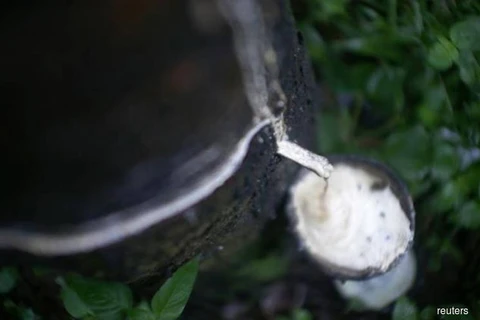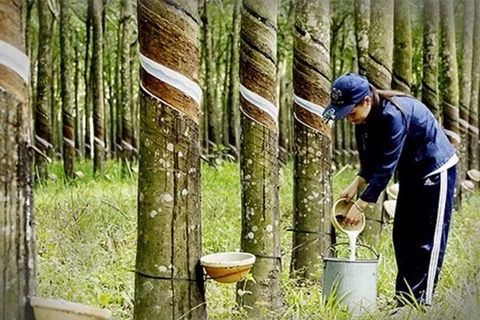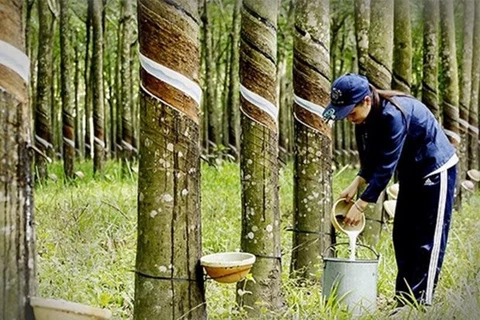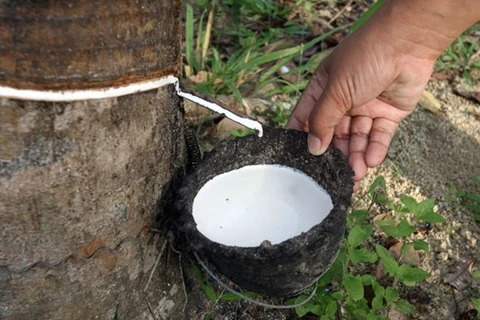Hanoi (VNA) - The European Union (EU)'s rules aimed at stopping deforestation threaten widespread disruption for Southeast Asia's rubber sector, from Cambodia's 30,000 small farmers to major exporters in Thailand and Malaysia, according to Nikkei Asia.
The EU's deforestation regulation (EUDR) aims to ban imports of seven commodities, including cattle, cocoa, coffee, palm oil, rubber, soy and wood items, if they come from land that was deforested after December 31, 2020.
Accordingly, companies dealing in such imports will have to provide "conclusive and verifiable information" mapping their supply chains, including geolocation data for where products were grown, to ensure products are compliant.
Compliance will become mandatory in December 2024 for larger companies and in June 2025 for smaller enterprises.
Critics said the concern for Southeast Asia is that these requirements will disproportionately hurt small farmers while failing to adequately address rubber's role in deforestation.
Thailand, the world's biggest rubber producer and exporter, is attempting to get out ahead of the new rules. Regulators there have set up a national platform to help the country's more than 5 million farmers meet the impending traceability requirements.
Producers in Thailand are also grappling with increased costs as sustainability becomes more of a concern for buyers and a legal requirement in more jurisdictions.
Thai Rubber Latex Group Chairman Vorathep Wongsasuthikul said building a system to allow customers to trace their products' provenance would push production costs up by 10%./.
The EU's deforestation regulation (EUDR) aims to ban imports of seven commodities, including cattle, cocoa, coffee, palm oil, rubber, soy and wood items, if they come from land that was deforested after December 31, 2020.
Accordingly, companies dealing in such imports will have to provide "conclusive and verifiable information" mapping their supply chains, including geolocation data for where products were grown, to ensure products are compliant.
Compliance will become mandatory in December 2024 for larger companies and in June 2025 for smaller enterprises.
Critics said the concern for Southeast Asia is that these requirements will disproportionately hurt small farmers while failing to adequately address rubber's role in deforestation.
Thailand, the world's biggest rubber producer and exporter, is attempting to get out ahead of the new rules. Regulators there have set up a national platform to help the country's more than 5 million farmers meet the impending traceability requirements.
Producers in Thailand are also grappling with increased costs as sustainability becomes more of a concern for buyers and a legal requirement in more jurisdictions.
Thai Rubber Latex Group Chairman Vorathep Wongsasuthikul said building a system to allow customers to trace their products' provenance would push production costs up by 10%./.
VNA
























